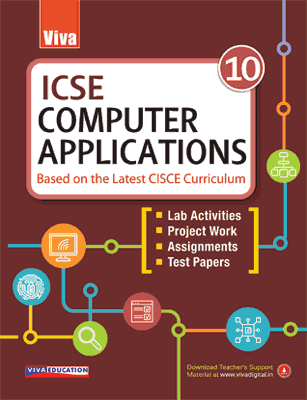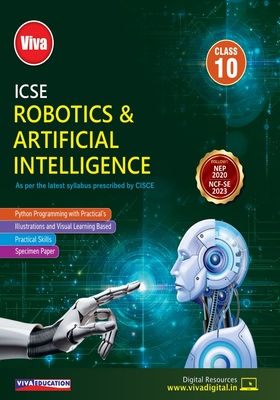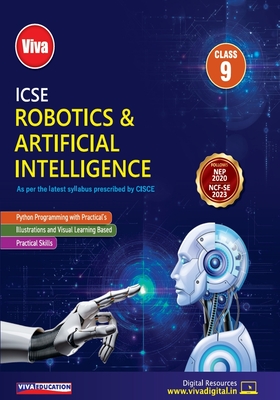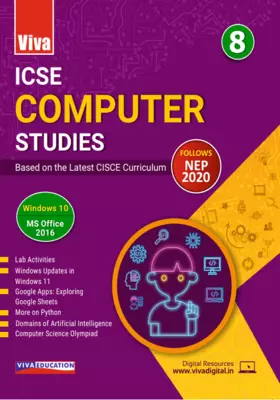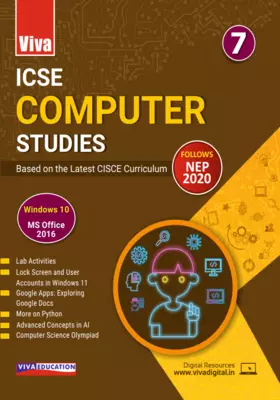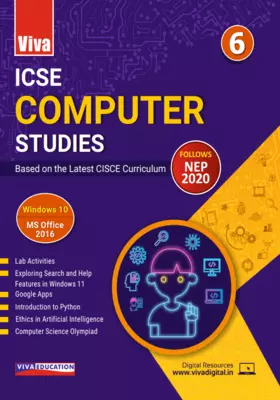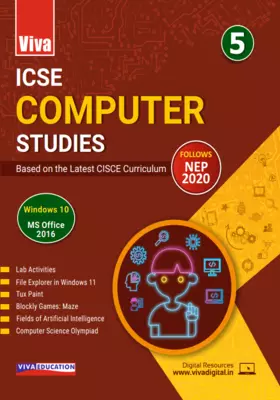VIVA ICSE Computer Applications, Class 10
VIVA ICSE Computer Applications, Class 10
Based on the Latest CISCE Curriculum
₹575.00
Go to cartISBN: 9789389662184
Bind: Paperback
Year: 2020
Pages: 268
Size: 8.5 x 11 Inch
Publisher: Viva Education
Exclusive Distributors: Viva Books
Sales Territory: Worldwide
• Lab Activities
• Project Work
• Assignments
• Test Papers
ICSE Computer Applications is in two volumes for classes 9 and 10. This volume is specially meant for Class 10 strictly following the latest CISCE curriculum. The book covers the advanced concepts of Java programming language. It is organised into eight chapters which include Basic Java Concepts: Revision, Class as the Basis of All Computation, User-defined Methods, Constructors, Library Classes, Encapsulation, Arrays and String Handling. Each chapter of the book is organised into Learning Objectives, Know More, Summary, Terms to Know, Review Questions (Solved), Application-based Questions, Activities and Projects, and Assignment. The book also provides two previous years question papers (solved) and two unsolved sample question papers at the end.
Features of Viva ICSE Computer Applications for Class 10
- Helps students to learn advanced concepts of Java programming language.
- Empowers students to build their own web-based applications in Java.
- Develops logical and analytical thinking for solving real-life application problems using effective tools and programming methodologies.
Resources for Teachers • Teacher's Manual • Worksheets
Online Resources • Answer Key • Worksheets
Target Audience:
This book is useful for Class 10 strictly following the latest CISCE curriculum.
Contents:
Chapter 1. Basic Java Concepts: Revision • Object-oriented Programming Concepts • Introduction to Java • Elementary Concept of Objects and Classes • Variables and Data Types • Operators in Java • Input in Java • Mathematical Library Methods • Conditional Constructs in Java • Iterative Constructs in Java • Nested for Loops
Chapter 2. Class as the Basis of All Computation • Objects and Classes • Class as an Object Factory • Objects as Instances of a Class • Objects Encapsulating State and Behaviour • Member Variables and Attributes Defining State • Member Methods Defining Behaviour • Classes as Abstractions for Sets of Objects • Primitive Data Types and Composite Data Types
Chapter 3. User-defined Methods • Need of Methods • Method Definition and Method Calling • Ways of Defining and Invoking a Method • Method Overloading
Chapter 4. Constructors • Definition, Use and Characteristics of Constructor • Types of Constructors • Constructor Overloading and this Keyword • Difference between Constructor and Method
Chapter 5. Library Classes • Introduction to Wrapper Classes • Methods of Wrapper Class and Their Usage • Common Wrapper Class Methods • Programs on Wrapper Class Common Methods • Autoboxing and Unboxing in Wrapper Classes • Primitive Data Type versus Composite Data Type
Chapter 6. Encapsulation • Encapsulation and Information Hiding • Access Specifier and Their Types • Scope and Visibility of Access Specifiers • Scope of Variables
Chapter 7. Arrays • Definition of Array • Types of Arrays • Declaring and Initialising Single Dimensional Arrays • Accepting Data of Single Dimensional Arrays • Accessing Single Dimensional Arrays • Programming Examples on 1-D Arrays • Declaring Initialising Double Dimensional Arrays • Accepting Data of Double Dimensional Arrays • Accessing Double Dimensional Arrays • Programming Examples on 2-D Arrays • Length Statement in Arrays • Uses of Arrays • Array as a Composite Type
Chapter 8. String Handling • String Class and Its Constructors • String Array • Common String Class Methods • Implementation of String Class Methods (Programs)
About the Author:
Prof. Ashok Arora is a renowned author of over 100 books in Computer Science including Encyclopaedia on IT for Schools, Computer Fundamentals, Management Information Systems, Unix, C and C++. He has over 30 years of experience in software development, teaching and book writing. He is on the panel of various schools, universities and management institutes including Institute of Management Technology (IMT), All India Management Association (AIMA), Maharishi Dayanand University (MDU), Sikkim Manipal University (SMU) and FORE School of Management as a visiting faculty, courseware developer and examiner.
